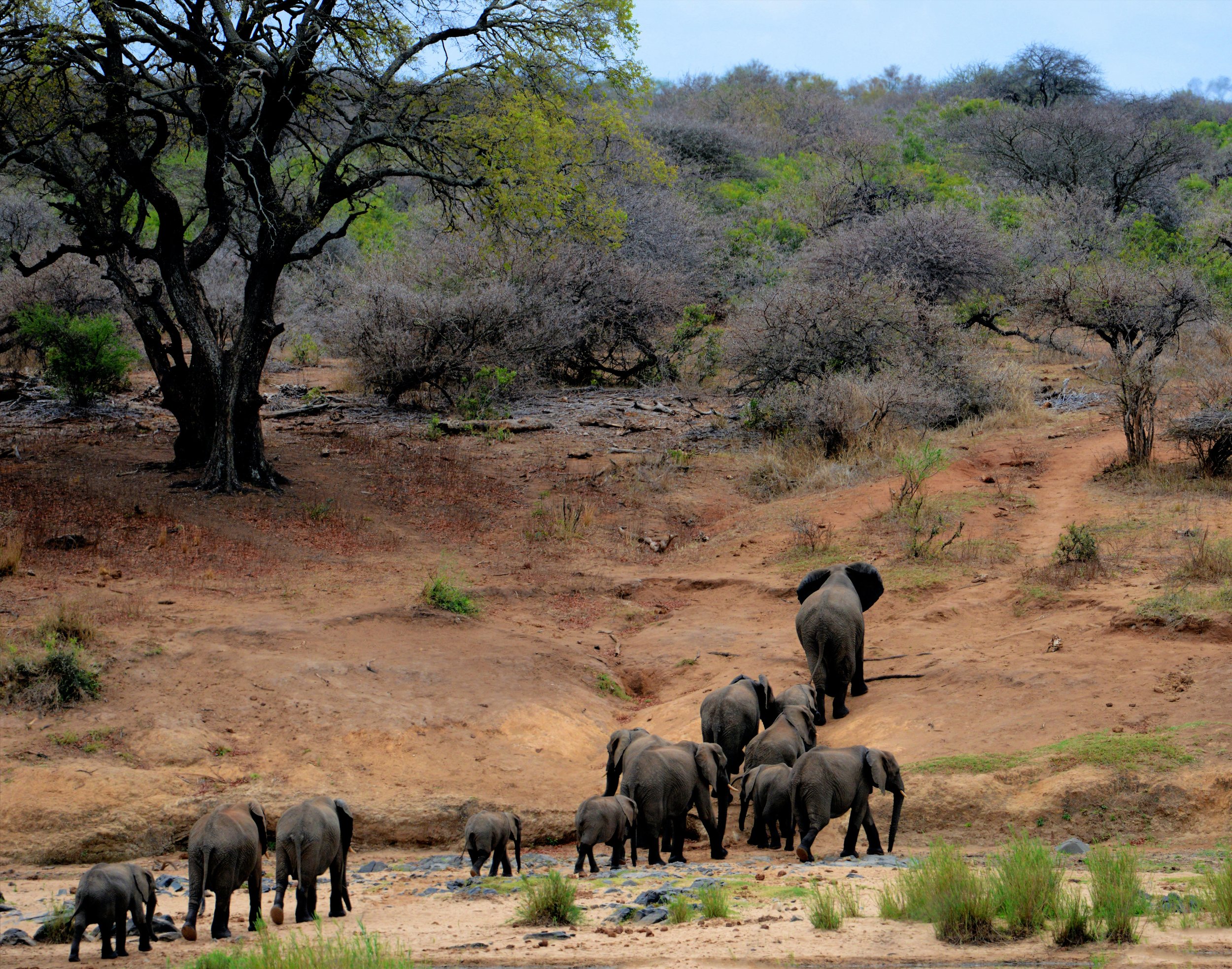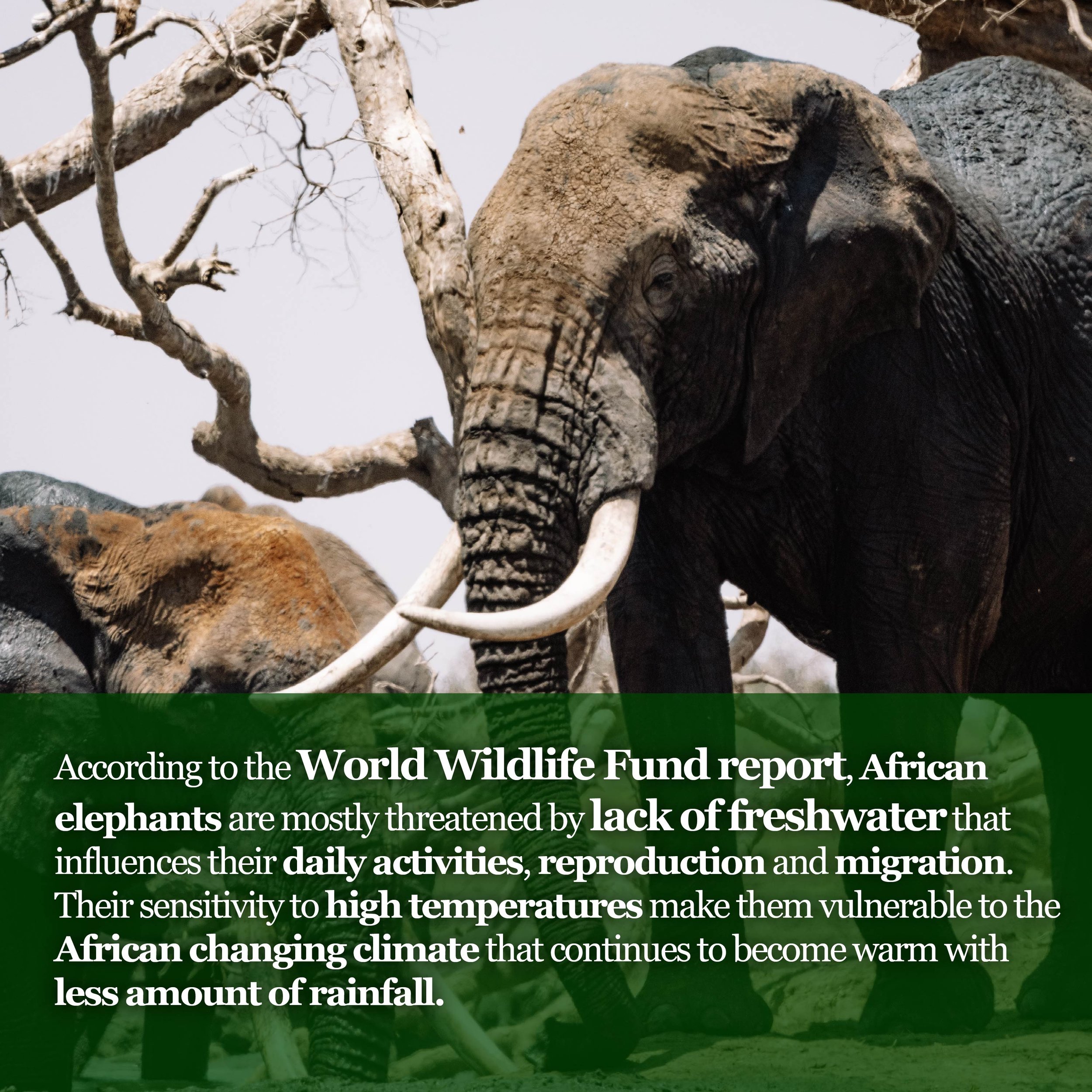Is Climate Change Causing an Increase in Poaching Throughout Africa?
By: Derrick Wachaya
Africa, known for its breathtaking biodiversity and majestic wildlife, is facing an escalating poaching crisis. While poaching has been an ongoing battle, the emerging specter of climate change has worsened the situation. The altering climate patterns and their devastating effects on habitats, coupled with socio-economic challenges, have created a perfect storm, making wildlife increasingly vulnerable to poachers. Let us explore the intricate link between climate change and poaching in Africa and highlight the urgent need for collective action to address this mounting threat.
Image courtesy of Pexels.com
Ravaged Habitats and Vanishing Resources
Climate change is wreaking havoc across the African continent, with rising temperatures and erratic rainfall patterns destroying ecosystems. In arid regions, persistent droughts and water scarcity are drastically depleting the available resources, pushing wildlife to the brink of survival. Animals such as elephants, rhinos and zebras are forced to travel farther distances in search of food and water, exposing them to heightened risks from poachers who exploit their vulnerability.
According to the World Wildlife Fund report, African elephants are threatened mostly by a lack of freshwater that influences their daily activities, reproduction and migration. Their sensitivity to high temperatures make them vulnerable to the African changing climate that continues to become warm with less amount of rainfall. Shrinking habitats are another consequence of climate change. Rampant deforestation, exacerbated by extreme weather events like wildfires, is eroding crucial wildlife habitats. These diminishing spaces leave animals with fewer safe havens, forcing them into human settlements where poaching activities are prevalent.
Human-Wildlife Conflict and Poaching
The complex interplay between climate change and poaching is further compounded by escalating human-wildlife conflicts. As resources dwindle, communities find themselves in direct competition with wildlife for survival. In regions plagued by drought and floods, agricultural activities suffer, leading to food scarcity and economic instability. Desperation sets in, driving some individuals to engage in poaching as an alternative means to sustain their families.
Furthermore, climate change disrupts traditional animal behavior patterns, making it difficult for authorities to anticipate their movements. This presents a significant challenge in terms of effectively monitoring and preventing poaching activities. Poachers take advantage of these changing circumstances, exploiting the chaos to carry out their illegal activities undetected.
Climate change is not only altering habitats and inciting conflicts but also fueling the demand for wildlife products. As communities grapple with the consequences of changing climates, traditional beliefs and cultural practices intensify the demand for products like ivory, rhino horn and bushmeat. Such items are erroneously believed to possess medicinal properties or as symbols of prestige, exacerbating the poaching crisis.
What Needs to be Done
According to the UN, tackling the detrimental nexus between climate change and poaching requires a multifaceted approach involving various stakeholders. Some key strategies that can help mitigate the crisis on the African continent include:
Habitat Restoration and Conservation: Urgent efforts are needed to restore degraded habitats, protect critical ecosystems, and ensure the survival of vulnerable species. Reforestation initiatives, the establishment of protected areas, and improved water management are vital steps towards securing viable habitats for wildlife.
Community Empowerment and Alternative Livelihoods: Fostering sustainable livelihood opportunities for local communities is crucial in curbing the reliance on poaching. By promoting eco-tourism, sustainable agriculture, and other income-generating activities, communities can benefit economically while becoming stewards of wildlife conservation.
Strengthening Law Enforcement and Collaboration: Enhancing anti-poaching measures, including intelligence gathering, patrolling, and prosecution of poachers, is essential in ending this crisis. Strengthening international cooperation and partnerships between governments, conservation organizations, and law enforcement agencies can bolster the fight against the illegal wildlife trade.
Education and Awareness: Educating communities about the consequences of poaching and the importance of wildlife conservation is key to changing mindsets. Robust awareness campaigns, targeted at both local and international audiences, can help reduce the demand for wildlife products and promote sustainable practices.
As climate change continues to unleash its devastating effects on Africa's ecosystems, the crisis of poaching becomes ever more alarming. Urgent action is needed to address this grave threat to wildlife conservation. By implementing comprehensive strategies that restore habitats, empower local communities, strengthen law enforcement, and raise awareness, we can foster a harmonious coexistence between humans and the magnificent creatures that roam the African continent. Only through collective efforts can we safeguard Africa's natural heritage and ensure a sustainable future for both wildlife and humanity.



